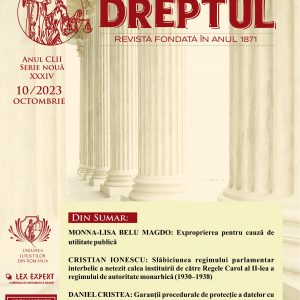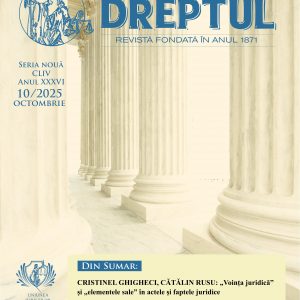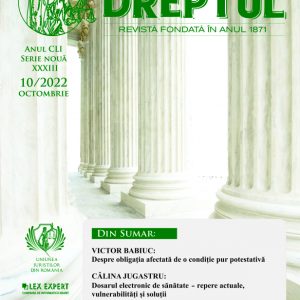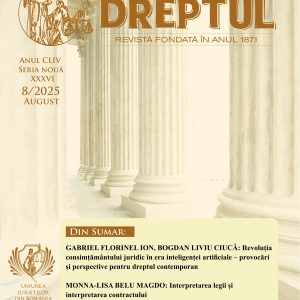-

-
 The development of the legal framework for public procurement in the European Union represents a very important issue which presents numerous challenges. The starting point of the evolution of legal aspects in public procurement was the year of 1962, when the institutions of the European Community at that time underlined the importance of the regulation of this aspect for making the common market operational. In this respect, they militated for eliminating commercial restrictions inside the Community among the member states by making operational the freedom to establish and the free movement of services. Originally, public procurement represented a non-tariff barrier in the development of the common market, thus opening the way toward the harmonization of this field by the European Commission among its member states, including Romania. The previously mentioned legislative process was divided by the doctrine of the public procurement law in 4 stages which describe the evolution of public contracts for goods, works and services.
The development of the legal framework for public procurement in the European Union represents a very important issue which presents numerous challenges. The starting point of the evolution of legal aspects in public procurement was the year of 1962, when the institutions of the European Community at that time underlined the importance of the regulation of this aspect for making the common market operational. In this respect, they militated for eliminating commercial restrictions inside the Community among the member states by making operational the freedom to establish and the free movement of services. Originally, public procurement represented a non-tariff barrier in the development of the common market, thus opening the way toward the harmonization of this field by the European Commission among its member states, including Romania. The previously mentioned legislative process was divided by the doctrine of the public procurement law in 4 stages which describe the evolution of public contracts for goods, works and services. -
 This study examines the issue of dialogue between the Court of Justice of the European Union and the constitutional courts of the Member States of the European Union, with special reference to the Constitutional Court of Romania, and from this perspective, the effects of integration into the European Union and the transnational judicial dialogue they produce within the national legal systems.
This study examines the issue of dialogue between the Court of Justice of the European Union and the constitutional courts of the Member States of the European Union, with special reference to the Constitutional Court of Romania, and from this perspective, the effects of integration into the European Union and the transnational judicial dialogue they produce within the national legal systems. -
 Departing from the constitutional basis underlying the relations between the Constitutional Court of Romania and the European Court of Human Rights, this study examines the judicial dialogue between the two courts and the effects thereof. The conclusion of this study, based on numerous examples from case-law, is that the dialogue between the constitutional judge and the European Judge serves to develop common standards for the protection of fundamental rights, as well as to enriching those existing at national level, with effects in terms of law-making and law-enforcement.
Departing from the constitutional basis underlying the relations between the Constitutional Court of Romania and the European Court of Human Rights, this study examines the judicial dialogue between the two courts and the effects thereof. The conclusion of this study, based on numerous examples from case-law, is that the dialogue between the constitutional judge and the European Judge serves to develop common standards for the protection of fundamental rights, as well as to enriching those existing at national level, with effects in terms of law-making and law-enforcement. -
 Taking into consideration the fact that the coverage of the World Trade Organization has been expanded to the field of services as well, in this study, the author examines litigations in the matter of services, which can be resolved by the mentioned Organization, with the observation that only countries or, as the case may be, the European Union, can be “parties” in such litigations. The implementation of the General Agreement on Trade in Services (GATS) between the countries is conditioned by the “influence” on the international trade in services by various actions taken by the Member States; in this respect, in the practice of GATS implementation, the notion of “influence” is understood extensively.
Taking into consideration the fact that the coverage of the World Trade Organization has been expanded to the field of services as well, in this study, the author examines litigations in the matter of services, which can be resolved by the mentioned Organization, with the observation that only countries or, as the case may be, the European Union, can be “parties” in such litigations. The implementation of the General Agreement on Trade in Services (GATS) between the countries is conditioned by the “influence” on the international trade in services by various actions taken by the Member States; in this respect, in the practice of GATS implementation, the notion of “influence” is understood extensively. -
 The violation of the rules of criminal law by a natural or legal person produces numerous consequences, both on the environment in which the offender lives and on his personality. Thus, criminal sanctions are applied to him with the purpose of preventing the commission of other deeds prohibited by the criminal law, but also of his re-education. However, the legislator, for reasons of criminal policy, has decided to regulate some situations that lead to saving the offender from the punishment provided by law. Among these situations are also the causes of impunity. The article aims to analyze the terminology used by the legislator in drafting cases of impunity and the repercussions that a misunderstanding thereof can have on the addressee of the criminal norm. For the elaboration of this article, doctrinal sources were used in which there have been defined causes of impunity and the moment in which they intervene, but also solutions found in the mandatory case law.
The violation of the rules of criminal law by a natural or legal person produces numerous consequences, both on the environment in which the offender lives and on his personality. Thus, criminal sanctions are applied to him with the purpose of preventing the commission of other deeds prohibited by the criminal law, but also of his re-education. However, the legislator, for reasons of criminal policy, has decided to regulate some situations that lead to saving the offender from the punishment provided by law. Among these situations are also the causes of impunity. The article aims to analyze the terminology used by the legislator in drafting cases of impunity and the repercussions that a misunderstanding thereof can have on the addressee of the criminal norm. For the elaboration of this article, doctrinal sources were used in which there have been defined causes of impunity and the moment in which they intervene, but also solutions found in the mandatory case law. -

-
 Law no. 202/2010 on certain measures to accelerate lawsuits’ settlement introduces into the Criminal Code, by art. 741 of the Criminal Code, a series of provisions in favor of the charged person or of the defendant who has committed certain economic offences and covered the damage in full, until the settlement of the cause of action in the court of the first instance. The author considers that these provisions could be construed as certain legal and real attenuating circumstances, however having a special regime, which often generates difficulties related to the interpretation and enforcement in the courts’ practice. However deemed as unconstitutional in May 2011, the provisions of the above-mentioned article are being enforced regarding the offences committed until its expiry date, pursuant to mitior lex principle.
Law no. 202/2010 on certain measures to accelerate lawsuits’ settlement introduces into the Criminal Code, by art. 741 of the Criminal Code, a series of provisions in favor of the charged person or of the defendant who has committed certain economic offences and covered the damage in full, until the settlement of the cause of action in the court of the first instance. The author considers that these provisions could be construed as certain legal and real attenuating circumstances, however having a special regime, which often generates difficulties related to the interpretation and enforcement in the courts’ practice. However deemed as unconstitutional in May 2011, the provisions of the above-mentioned article are being enforced regarding the offences committed until its expiry date, pursuant to mitior lex principle. -
 The process of fighting against tax evasion has been and continues to be of particular importance for the Romanian legislator, due to the negative effects which this widespread phenomenon generates on the economic and social life, affecting the long-term development of a country faced with a fragile economy, still in transition. Despite the legislative developments of the last years, the normative framework in force continues to generate certain controversies, due to the different application and interpretation of the law, one of them being the modality to settle the civil action in the criminal trial, in case of tax evasion offences. Starting from the mentioned premise situation, the author of this study tries to provide an answer to one of the problems noticed in the process of interpretation and application of the law, related to the possibility of granting ancillary tax claims in the criminal trial. In this context, having regard to the legal framework in force, the author expresses his opinion on the impossibility to provide this kind of claims in the criminal trial, however expressing the opinion that the contrary solution, beneficial for the purpose pursued by the legislator, could form the object of legislative intervention, thereby providing a solid foundation for the solutions binding the author of the offence to pay the ancillary tax claims, even in a modality atypical to the tort civil liability, which serves as a model in the criminal trial.
The process of fighting against tax evasion has been and continues to be of particular importance for the Romanian legislator, due to the negative effects which this widespread phenomenon generates on the economic and social life, affecting the long-term development of a country faced with a fragile economy, still in transition. Despite the legislative developments of the last years, the normative framework in force continues to generate certain controversies, due to the different application and interpretation of the law, one of them being the modality to settle the civil action in the criminal trial, in case of tax evasion offences. Starting from the mentioned premise situation, the author of this study tries to provide an answer to one of the problems noticed in the process of interpretation and application of the law, related to the possibility of granting ancillary tax claims in the criminal trial. In this context, having regard to the legal framework in force, the author expresses his opinion on the impossibility to provide this kind of claims in the criminal trial, however expressing the opinion that the contrary solution, beneficial for the purpose pursued by the legislator, could form the object of legislative intervention, thereby providing a solid foundation for the solutions binding the author of the offence to pay the ancillary tax claims, even in a modality atypical to the tort civil liability, which serves as a model in the criminal trial. -
 The study addresses a field of great practical interest, that of traffic contraventions. The perspective is one that combines in a balanced manner the doctrinal elements with the jurisprudential ones, the author proving a very good knowledge of the points of debate and of divergence in this matter. In the study there are included also elements that serve to differentiate the contravention from the offence, with references to the doctrine that has addressed this issue, but also the analysis of the most common differences of opinion, of interpretation and of application of the law. Among these there are: the forced intervention in the matter of the settlement of contraventional complaints, the balance between the presumption of innocence of the petitioner and the presumption of legality of the official report of the contravention, as well as the difficulties in establishing the judicial truth in the matter of contraventional complaints.
The study addresses a field of great practical interest, that of traffic contraventions. The perspective is one that combines in a balanced manner the doctrinal elements with the jurisprudential ones, the author proving a very good knowledge of the points of debate and of divergence in this matter. In the study there are included also elements that serve to differentiate the contravention from the offence, with references to the doctrine that has addressed this issue, but also the analysis of the most common differences of opinion, of interpretation and of application of the law. Among these there are: the forced intervention in the matter of the settlement of contraventional complaints, the balance between the presumption of innocence of the petitioner and the presumption of legality of the official report of the contravention, as well as the difficulties in establishing the judicial truth in the matter of contraventional complaints. -
 The article reviews the main features of digitization and its implications in the economic and social field. The technological perturbations on the economy, people’s conduct, medicine, law, psychology and education are significant. The author proposes the establishment of a National technical-legal laboratory, besides a faculty of law, and of a scientific event, entitled „Law and Digitization – Improving Legal Services”, to help improve access to justice in a digitized world.
The article reviews the main features of digitization and its implications in the economic and social field. The technological perturbations on the economy, people’s conduct, medicine, law, psychology and education are significant. The author proposes the establishment of a National technical-legal laboratory, besides a faculty of law, and of a scientific event, entitled „Law and Digitization – Improving Legal Services”, to help improve access to justice in a digitized world. -

